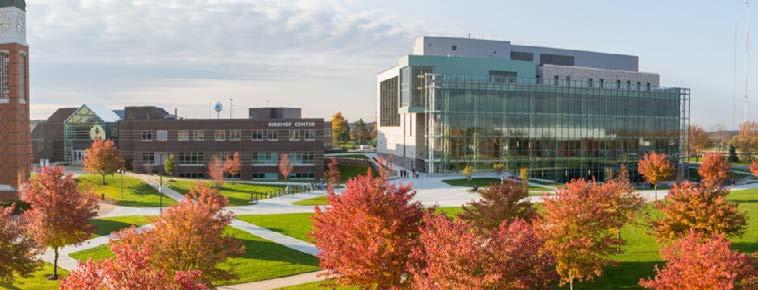
3 minute read
Traditional medicine services Available
Traditional medicine services are now being overseen by the Center of History & Culture. If you are interested in seeing Keith Smith for traditional medicine services, he will be available one Friday and Saturday, per month to see tribal Citizens by appointment only. Appointments are taking place in the Government Annex, 58653 Sink Road, Dowagiac, MI.
April 14 + 15
May 12 + 13
June 9 + 10
All tribal citizens are welcome to schedule an appointment, whether it will be your first time or you are returning for a follow up. Please contact Nicole Holloway at the Center of History & Culture at (269) 783-3513 (desk), (269) 783-6131 (cell) or Nicole.Holloway@ PokagonBand-nsn.gov, to schedule an appointment or to inquire about the services provided.
**We honor patient confidentiality
**Due to COVID-19 and for the health and safety of our Citizens and staff, a health questionnaire and body temperature of less than 100 degrees F will be required before each scheduled appointment.
If you’re a teen, or you know a teen between 14-17 years old who is looking to make connections with kids of the same age, consider joining this group. Much of the group time is spent immersed in Coyote and Crow. Coyote and Crow is a role playing game (RPG) that takes place in a future science fiction setting where the Americas were never colonized by Europeans, and the societies being explored are all extrapolated from Indigenous cultures.

“The kids love it,” expressed Stacy Young, Behavioral Health Counselor and group facilitator. “Kids create their own characters and make choices and decisions that may or may not work. RPGs provide a safe place for kids to explore, succeed, and sometimes fail. The game provides a foundation for some great peer-to-peer conversations.” consumes more time and energy. Parents and family members may notice changes in grades due to missing assignments, absences, or poor quality of work. Relationships with friends and family begin to suffer. Friction and altercations with others could be about gambling debts. There may be an increased interest in money and the value of possessions, and valuables may turn up missing. Money provided to children for field trips, school materials, meals, and other purposes may be used for gambling or to pay gambling debts.
If you would like more information or are interested in the Teen Skills Group, please call the Behavioral Health department at (269) 783-2476 or email Stacy Young at Stacy.Young@PokagonBand-nsn.gov.
Gambling is more socially acceptable today thanks to the myriad of casino advertisements and online website commercials offered on television and may seem like harmless entertainment. For most adults, gambling is harmless entertainment. This is one reason why most parents deem gambling by young people as less dangerous than drug or alcohol addiction. Actually, statistics show that…
• 20% of addicted gamblers have filed for bankruptcy
• 20% of the homeless are gambling addicts
• 60% of those addicted to gambling will commit crimes
• Up to 50% of spouses of addicted gamblers are abused
• 20% of gambling addicts commit or attempt suicide
The most important thing you can do to prevent your child from gambling addiction is to talk to them about the risks of gambling addiction just as you would speak to them about the dangers of drug and alcohol abuse. Pay attention to changes in your child’s behaviors or activities. Talk to your children often to hear to the good and the bad. Become a trusted person to talk to about all subjects. If addiction of any kind ever becomes an issue, remember it’s not a matter of being irresponsible – it’s an addiction rooted in the same brain chemistry that drives drug and alcohol addiction.
Know that you are not alone in the fight to protect your children. Below are resources to inform and seek help if needed.
• Licensed Counselors are on staff at Pokagon Behavioral Health Services – (269) 783-2476

• Problem Gambling – michigan.gov
• National Council on Problem Gambling National Council on Problem Gambling, NCPG – ncpgambling.org
• Addictive behaviors: Gaming Disorder – who.int

• National Problem Gambling Hotline(800) 552-4700. Chat: ncpgambling.org/chat. Text (800) 522-4700
• To learn more about problem gambling in Michigan, visit the problem gambling webpage on the Michigan Department of Health & Human Services website.
• Parent video on gambling: https://youtu.be/E0Dj_OuqYtI
• Parenting video on gaming: https://youtu.be/2pPpSuFFJ3Y







